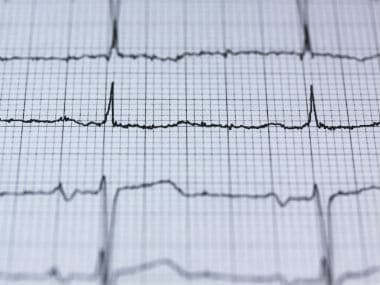People often don’t realise they are suffering from heart disease until they get chest pain (angina) or respiratory discomfort. However, the body does start to present subtle signs that something is amiss much before this happens. Some of these signs can go under our radar because they don’t seem to be related to the heart at all. The heart is behind 31% of all deaths globally, every year. While a healthy lifestyle can ensure better heart health, self-monitoring can be an effective way to identify heart disease early and seek medical help in time to prevent lasting damage. [caption id=“attachment_7414181” align=“alignleft” width=“380”]
 Representational image.
Image source: Pixabay[/caption] In the run-up to World Heart Day on 29 September — a day dedicated to raising awareness about one of the biggest and strongest muscles in the body — here are five unusual signs that say you need to pay attention to your heart.
Snoring (sleep apnea)
We snore when the tissues in our airways vibrate during sleep - this is normal. Loud snoring, however, may be a sign of sleep apnea - a condition in which the person stops breathing (very briefly) five to 30 times every hour. When this happens, the brain doesn’t get enough oxygen and wakes the patient up multiple times during the night. Sleep apnea is one of the most common causes of cardiovascular conditions. According to an article published in Harvard Health, an online publication by the Harvard Medical School, people with sleep apnea are five times more likely to die of heart disease than people who don’t have this condition. Additionally, 47-83% of people living with cardiovascular conditions, 35% of people living with high blood pressure, and 12-53% of those with heart failure have sleep apnea.
Loose teeth
Teeth loss and gum diseases are considered general markers of poor health. Now, researchers claim that people with gum diseases have three times the risk of developing heart disease than people with healthy dentition. Of course, this may just be a side-effect of poor lifestyle and smoking - they increase the risk for both heart diseases and gum diseases. But there is emerging evidence that poor oral health may be an independent indicator for cardiovascular conditions. Teeth start to become weak due to bacterial growth that slowly erodes the surrounding structures, pulling the tooth out of its socket. When these bacteria travel into the bloodstream, they may damage heart valves and/or the outer layer of the heart- a condition known as infective endocarditis.
A cough that refuses to go away
Cough is a common condition - we seldom pay attention to it. However, a persistent cough may be an indication of heart failure. “If you have been taking medicine for a respiratory condition and the cough still doesn’t go away, do not ignore it,” said Dr Ayush Pandey, a medical practitioner associated with myUpchar. “Heart failure occurs when your heart can’t pump sufficient blood to your body. This creates pressure in the veins and pushes fluid back into the lungs. The cough is just a reflex to push the fluid out and balance the body system,” he added.
Losing grip strength
Change in grip strength is an accepted indicator of heart health. According to one estimate, for every 11-pound (4.98-kg) decrease in grip strength, one’s risk of death by heart disease goes up 17% - the risk of a heart attack specifically goes up a whopping 7%. This risk-equation holds regardless of age, exercise, and lifestyle factors. Experts say that grip strength can tell you a lot about a person’s biological age (as opposed to their chronological age) - an older person may have the body of a younger person, with better functioning systems. In a 2018 study, researchers at the Queen Mary University, UK, found that people with strong grip strength had better cardiac output - they pumped more blood per minute irrespective of their heart mass. They were also less prone to heart damage due to hypertension.
Neck fat
Odd as it may seem, people with a thicker neck are as likely to get heart disease as those with big bellies. According to the American Heart Association, neck fat just adds to the upper body adiposity (excess weight) and total cholesterol - two major risk factors for heart disease. Health articles in Firstpost are written by myUpchar.com, India’s first and biggest resource for verified medical information. At myUpchar, researchers and journalists work with doctors to bring you information on all things health. For more information, please read our articles on heart disease and sleep apnea_._


)

)
)
)
)
)
)
)
)



